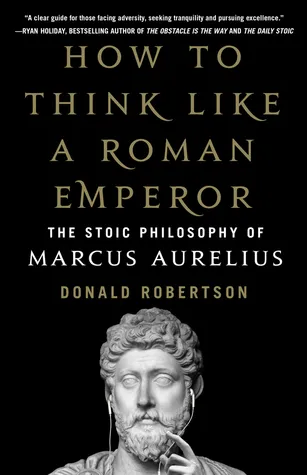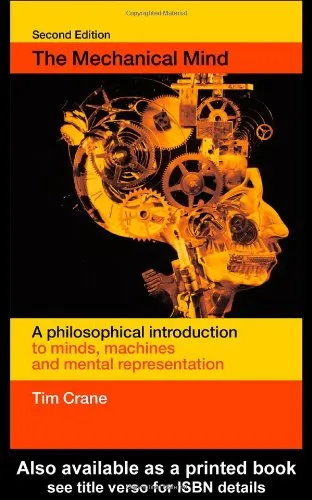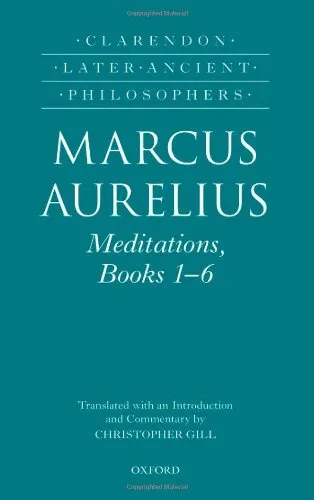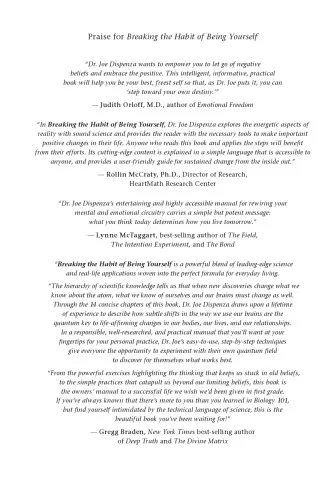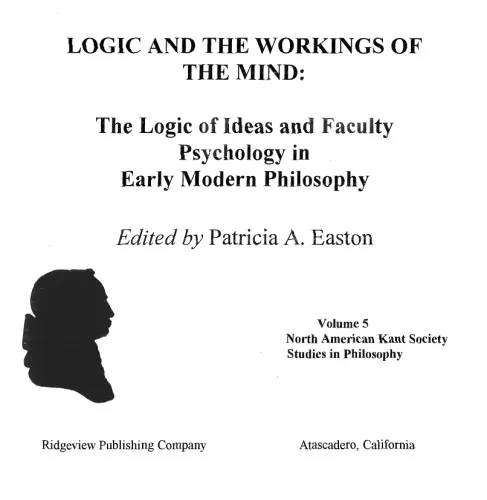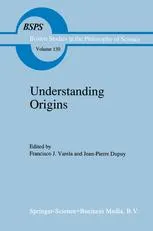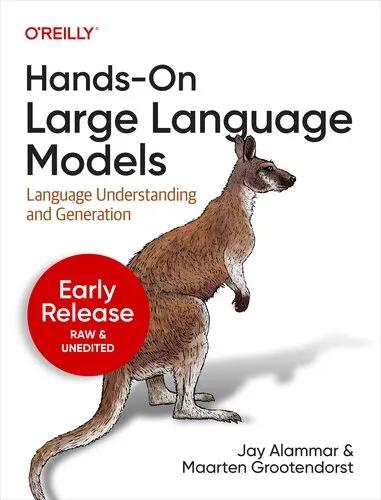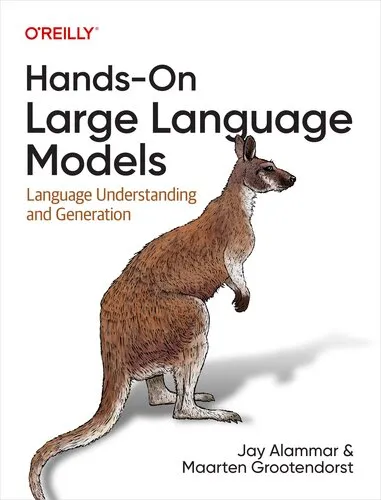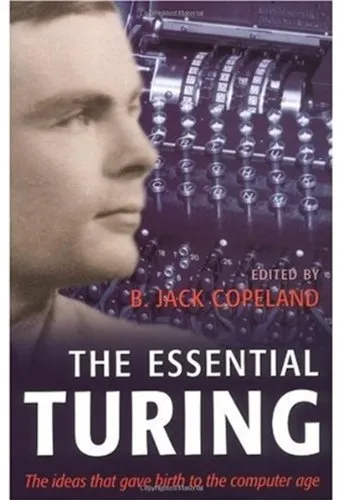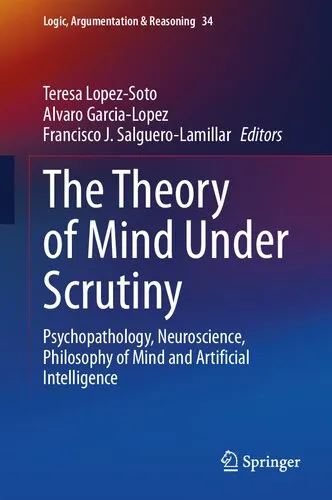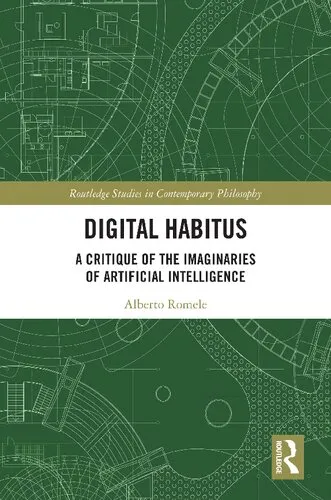How to Think Like a Roman Emperor: The Stoic Philosophy of Marcus Aurelius
4.5
بر اساس نظر کاربران

شما میتونید سوالاتتون در باره کتاب رو از هوش مصنوعیش بعد از ورود بپرسید
هر دانلود یا پرسش از هوش مصنوعی 2 امتیاز لازم دارد، برای بدست آوردن امتیاز رایگان، به صفحه ی راهنمای امتیازات سر بزنید و یک سری کار ارزشمند انجام بدینکتاب های مرتبط:
معرفی کتاب
کتاب «How to Think Like a Roman Emperor: The Stoic Philosophy of Marcus Aurelius» نوشتهٔ دونالد جی. رابرتسون، به بررسی فلسفهٔ استویک مارکوس اورلیوس میپردازد و درسهایی را از زندگی و تفکرات او استخراج میکند که میتواند در زندگی مدرن امروز مورد استفاده قرار گیرد.
خلاصهای از کتاب
این کتاب به عنوان راهنمایی جامع برای فهم و بکارگیری فلسفه استویکی مارکوس اورلیوس طراحی شده است. رابرتسون، نویسنده و روانشناس متخصص در فلسفه استویک، داستان زندگی اورلیوس را با دیدگاهی روانشناختی و فلسفی توضیح میدهد. این کتاب به زندگی، مبارزات، و موفقیتهای امپراطور روم در مواجهه با مشکلات شخصی و سیاسی میپردازد. هر فصل شامل داستانها و درسهایی از زندگی اورلیوس است و نهایتاً به توضیح فنون استویکی خاصی که میتواند به خواننده در مقابله با چالشهای روزانه کمک کند، میپردازد.
نکات کلیدی
- فلسفه استویک به انسان کمک میکند تا آرامش خود را در مواجهه با مشکلات حفظ کند.
- مارکوس اورلیوس به عنوان نمونهای عملی از کاربرد فلسفه استویک در رهبری و مدیریت بحران شناخته میشود.
- شاخههای روانشناختی در فلسفه استویک به خصوص در زمینهٔ تفکر شناختی مورد تاکید قرار میگیرد.
نقلقولهای معروف
«ذن یعنی اینکه افکارت را با واقعیت هماهنگ کنی.»
«خود را با منابع درونی تقویت کن، آنها چیزی هستند که هیچکس نمیتواند از تو بگیرد.»
چرا این کتاب مهم است
کتاب «How to Think Like a Roman Emperor» نه تنها به دلیل محتوای مستند و آموزندهاش، بلکه به سبب ترجمه عملی فلسفه استویک به زبانی که برای خوانندگان امروزی قابل فهم و استفاده باشد، حائز اهمیت است. رابرتسون موفق شده است درسهای مهمی را از زندگی مارکوس اورلیوس استخراج و به زبانی روان و منطقی ارائه دهد. این کتاب نه تنها برای علاقهمندان به فلسفه، بلکه برای تمامی افرادی که به دنبال ابزارهایی برای بهبود خود و افزایش تواناییهای روانی و عاطفی هستند، مناسب است. در دنیای امروز که زندگی با اضطراب و استرس عجین شده است، بهرهگیری از اصول و فلسفه استویک میتواند مانند نوری برای هدایت افراد به سوی زندگی آرامتر و رضایتبخشتر باشد.
Welcome to the exploration of timeless wisdom from ancient Rome. "How to Think Like a Roman Emperor: The Stoic Philosophy of Marcus Aurelius" by Donald J. Robertson is an empowering guide that brings the ancient philosophy of Stoicism to life through the lens of Marcus Aurelius, one of Rome's greatest emperors and Stoic philosophers.
Detailed Summary of the Book
In "How to Think Like a Roman Emperor," Donald J. Robertson intricately weaves the biography of Marcus Aurelius with the practical application of Stoic philosophy. The book is both a historical narrative and a practical manual, offering readers a journey through the life of Marcus, illustrating how he applied Stoic principles to govern the Roman Empire and confront personal challenges.
Robertson blends anecdotes from Marcus’s life with Stoic exercises that can be applied today. By analyzing Marcus’s meditations and his behavior as an emperor, Robertson provides a vivid depiction of Stoic strategies such as mindfulness, emotional resilience, and cognitive distancing. Each chapter of the book focuses on a specific aspect of Stoic philosophy, such as dealing with anger, coping with pain, and maintaining equanimity in the face of adversity. The reader is guided through reflective practices and modern psychotherapeutic techniques that align with Stoic wisdom.
This book not only illuminates the path trodden by one of history's most respected leaders but also makes the philosophical insights accessible for contemporary readers. By illustrating Stoicism as both a powerful philosophy and a way of life, Robertson assists readers in cultivating a mindset akin to that of a Stoic emperor.
Key Takeaways
- Understand the core principles of Stoic philosophy and how they can be applied to modern life.
- Learn strategies for developing emotional resilience and equanimity.
- Explore the life of Marcus Aurelius and how he embodied Stoic virtues in his rule and personal life.
- Discover practical exercises and reflective techniques inspired by Stoic teachings.
- Gain insights into transforming personal challenges into opportunities for growth through Stoic wisdom.
Famous Quotes from the Book
"The universe is change; life is opinion."
This quote highlights the Stoic belief in the transitory nature of life and the critical role our perceptions play in shaping our experiences.
"You have power over your mind — not outside events. Realize this, and you will find strength."
This fundamental Stoic insight reminds us of the importance of focusing on what we can control and cultivating inner strength.
Why This Book Matters
"How to Think Like a Roman Emperor" resonates in today’s world as it offers timeless strategies for dealing with modern challenges. In an era where individuals are constantly confronted with stress and uncertainty, the Stoic principles illustrated by Marcus Aurelius provide a robust framework for inner harmony and resilience. Robertson’s work is essential not merely for those interested in philosophy but for anyone seeking guidance in transforming their way of thinking and improving their quality of life.
The book stands out due to its seamless integration of historical narrative, philosophical exposition, and practical advice, making Stoic teachings not just an abstract concept but a usable toolkit for daily living. It bridges the gap between ancient wisdom and modern psychology, offering readers profound lessons on leadership, compassion, and self-improvement.
Through “How to Think Like a Roman Emperor,” Donald J. Robertson provides more than a glimpse into a legendary historical figure's mind; he crafts a roadmap toward personal empowerment and tranquility, inviting readers to embark on their own journey as modern Stoics.
دانلود رایگان مستقیم
شما میتونید سوالاتتون در باره کتاب رو از هوش مصنوعیش بعد از ورود بپرسید
دسترسی به کتابها از طریق پلتفرمهای قانونی و کتابخانههای عمومی نه تنها از حقوق نویسندگان و ناشران حمایت میکند، بلکه به پایداری فرهنگ کتابخوانی نیز کمک میرساند. پیش از دانلود، لحظهای به بررسی این گزینهها فکر کنید.
این کتاب رو در پلتفرم های دیگه ببینید
WorldCat به شما کمک میکنه تا کتاب ها رو در کتابخانه های سراسر دنیا پیدا کنید
امتیازها، نظرات تخصصی و صحبت ها درباره کتاب را در Goodreads ببینید
کتابهای کمیاب یا دست دوم را در AbeBooks پیدا کنید و بخرید
2022
بازدید4.5
امتیاز0
نظر98%
رضایتنظرات:
4.5
بر اساس 0 نظر کاربران
Questions & Answers
Ask questions about this book or help others by answering
No questions yet. Be the first to ask!
